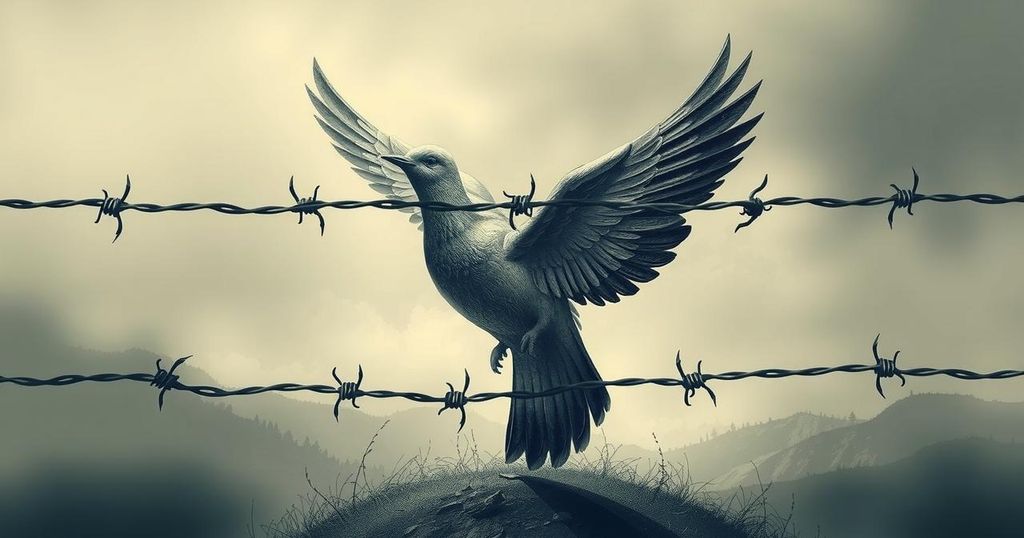The UN Commission on Human Rights in South Sudan warns that political leaders must address corruption and impunity to prevent further human rights violations. The report details ongoing violence, particularly ethnic violence in Tambura, highlighting the need for accountability and governance. It calls for a restructuring of national wealth allocation to support essential services and urges the repeal of laws that promote extrajudicial killings.
The UN Commission on Human Rights in South Sudan has released a report asserting that the nation’s political leaders must confront the rampant corruption and impunity that contribute to egregious human rights violations. Presented to the UN Human Rights Council, this 24-page document emphasizes the dire consequences of ongoing violence, particularly in light of recent events in Tambura, where ethnic-based violence has exacerbated social fractures following the 2021 conflict. Yasmin Sooka, the Commission Chair, stressed the failures of political leaders, stating, “It is unconscionable that so many years after its independence… they continue their violent contestations across the country.”
The report points to systemic issues such as the brutal and widespread nature of conflict-related sexual violence and the forced recruitment of children into armed groups. Political and military elites frequently evade accountability for violent actions. The humanitarian crisis and lack of essential services are compounded by the misallocation of national wealth. The report stresses that corruption undermines justice and the establishment of functional governance structures, which are crucial for lasting peace.
Excusing the extension of transitional political arrangements due to severe funding constraints, the report reveals that government revenues from oil reached $3.5 billion primarily between September 2022 and August 2024. Despite significant finances, necessary services such as education, healthcare, and judicial support remain neglected. The Commission’s findings highlight that without addressing corruption, no peace agreement will yield sustainable improvements.
Furthermore, the introduction of the “Green Book” state law in Warrap, which allows for extrajudicial killings in cases of cattle raiding, signifies a troubling trend towards lawlessness. The Commission reported that the law perpetuates violence, selectively targets communities, and has entrenched a culture of impunity. The single judge overseeing Warrap’s judiciary serves to illustrate the critical inadequacies of legal representation and support within the state.
The Commissioners emphasized the urgent need for national accountability mechanisms and effective governance during their visit to South Sudan, acknowledging the ongoing repression faced by victims of human rights violations. They reiterated the importance of political will to break the cycle of violence and indicated that failure to address essential services and judicial integrity will further erode community relations and impede progress.
While the full implications of the Commission’s report are still unfolding, it clearly indicates that immediate action is required to prioritize human rights, rebuild governmental institutions and ensure equitable distribution of national wealth to support the development of South Sudan.
In conclusion, the UN Commission on Human Rights in South Sudan stresses the urgent need for political leaders to confront impunity and corruption, which are fueling violence and gross human rights violations. The report underscores the importance of accountability, governance, and financial transparency for establishing lasting stability. Furthermore, the introduction of harmful laws and the neglect of essential services indicate a pressing need for reform to protect the rights and welfare of South Sudan’s citizens. The Commissioners’ insistence on accountability and institutional development remains critical for meaningful progress within the nation.
Original Source: reliefweb.int






